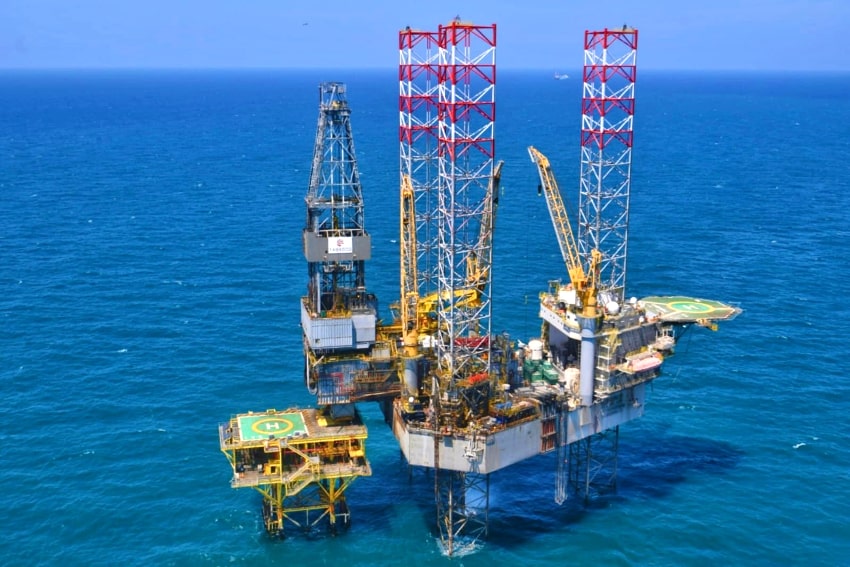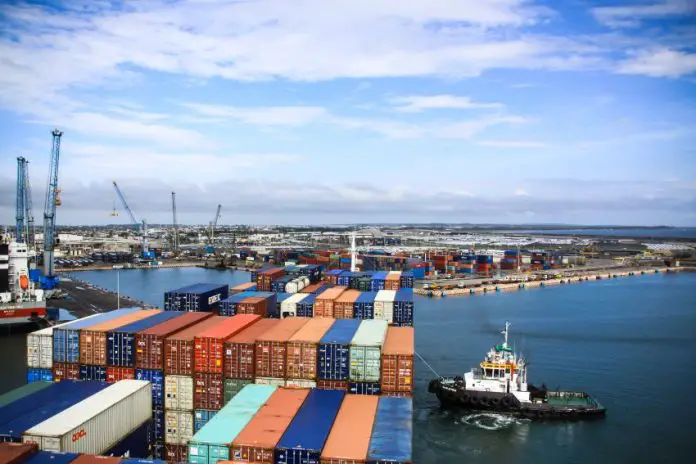Mexico remains on track to set a new record for exports in 2024 after the value of goods shipped abroad in July increased almost 15% in annual terms.
The national statistics agency INEGI reported Tuesday that Mexico’s exports were worth US $54.78 billion in July, a 14.7% increase compared to the same month of last year.

The value of exports in the first seven months of the year rose to $354.17 billion, a 4.3% increase compared to the same period of 2023.
Mexico’s exports were worth a record high of just over $593 billion last year.
Based on the export revenue earned in the first seven months of the year, the country is on track to break the $600-billion barrier for the first time ever in 2024.
More than 80% of Mexico’s export earnings comes from products sent to the United States.
Mexico became the top exporter to the U.S. in 2023, dethroning China.
Manufacturing: Mexico’s export powerhouse
More than 90% of Mexico’s export revenue in July came from the shipment abroad of manufactured goods.
The manufacturing sector accounted for just under 90% of export income in the first seven months of the year.
INEGI data shows that the value of Mexico’s manufacturing sector exports surged 15.9% in July compared to the same year of 2023 to reach $49.74 billion.
Manufactured goods brought in revenue of $316.14 billion between January and July, a 4.8% increase compared to the first seven months of last year.
A wide range of products are made in Mexico, but the country’s top-earning manufacturing sub-sector is the automotive industry.
Mexico’s auto industry — which includes U.S., Asian and European automakers — generated $17.1 billion in revenue in July and $112.32 billion in the first seven months of the year.
The latter figure — an increase of 6.6% compared to the January-July period of 2023 — accounts for almost one-third of Mexico’s total export revenue so far this year.
Mexico’s other manufacturing sub-sectors, among which are electronics, aerospace, medical devices and textiles, brought in export revenue of $203.82 billion in the first seven months of the year, a 3.8% annual increase.
In total, Mexican-made goods generated export revenue of $316.14 billion between January and June, a 4.8% year-over-year increase.
#TomaNota ✍🏼 Con cifras oportunas, en julio 2024 las exportaciones totales nacionales, que son los bienes que vendemos al exterior 📦🇲🇽, mostraron un crecimiento anual de ⬆️14.7%; resultado de un avance de 16.2% en las exportaciones no petroleras y un retroceso de (-)10.2% en las… pic.twitter.com/EuQXRpvpK6
— México, ¿cómo vamos? (@MexicoComoVamos) August 27, 2024
Mexico is aiming to further bolster its manufacturing sector by attracting foreign companies to nearshore here.
Automakers Tesla and BYD are among the many foreign companies that have recently announced plans to establish plants in Mexico, while steelmaker Ternium is among those that intend to expand their existing operations in the country.
Ag and mining exports also grow, but oil earnings fall
The value of agricultural exports increased 16.9% annually in July to reach $1.75 billion.
Beef exports brought in almost twice as much revenue as the same month last year, while earnings from the shipment abroad of both citrus fruits and avocados increased by more than 30%.
Agricultural products including fruit, vegetables and meat brought in $14.75 billion in export revenue in the first seven months of 2024, a 7.7% annual increase.
Agriculture was Mexico’s third largest export industry between January and July, after manufacturing and oil.
Mexico’s mining sector earned $790.1 million in export revenue in July, a 33.7% annual increase, and $5.93 billion in the first seven months of 2024, a gain of 6.3% compared to the same period of 2023.
Meanwhile, revenue from oil exports — crude and fuel products — declined 10.2% annually in July to $2.49 billion. Oil revenue fell 6.4% in the first seven months of the year to $17.34 billion.
Mexico is aiming to become self-sufficient in fuel and as a result, is sending less crude abroad.
Fuel imports fall, but Mexico still has a trade deficit
Mexico spent $5.88 billion on imports of oil-based “consumer goods” — gasoline, diesel and the like — in the first seven months of the year, a decline of 47.4% compared to the same period of last year.
Imports of oil-based intermediate goods fell 20.5% to $16.65 billion in the same period.

All told, Mexico spent $22.54 billion on imported oil products between January and July, a 29.9% annual decrease.
In contrast, Mexico’s total outlay on imports increased 3.8% annually in the first seven months of the year to reach $359.74 billion.
Mexico thus recorded a trade deficit of $5.56 billion between January and July. That figure is 22.1% lower than Mexico’s deficit in the same period of last year. Mexico’s trade deficit in July was just $72 million, with the value of imports only narrowly above the value of exports.
Three-quarters of Mexico’s total outlay on imports in the first seven months of the year was spent on intermediate goods: products such as steel, glass and sugar that are used in the production of final or consumer goods.
Intermediate goods imports were worth $271.56 billion between January and July, a 2.3% annual increase.
Spending on consumer goods imports (excluding fuel) increased 23% annually to $46.33 billion in the first seven months of the year, while Mexico’s outlay on capital goods such as machinery and other equipment rose 10.5% to $35.95 billion.
With reports from El Economista and El Universal
